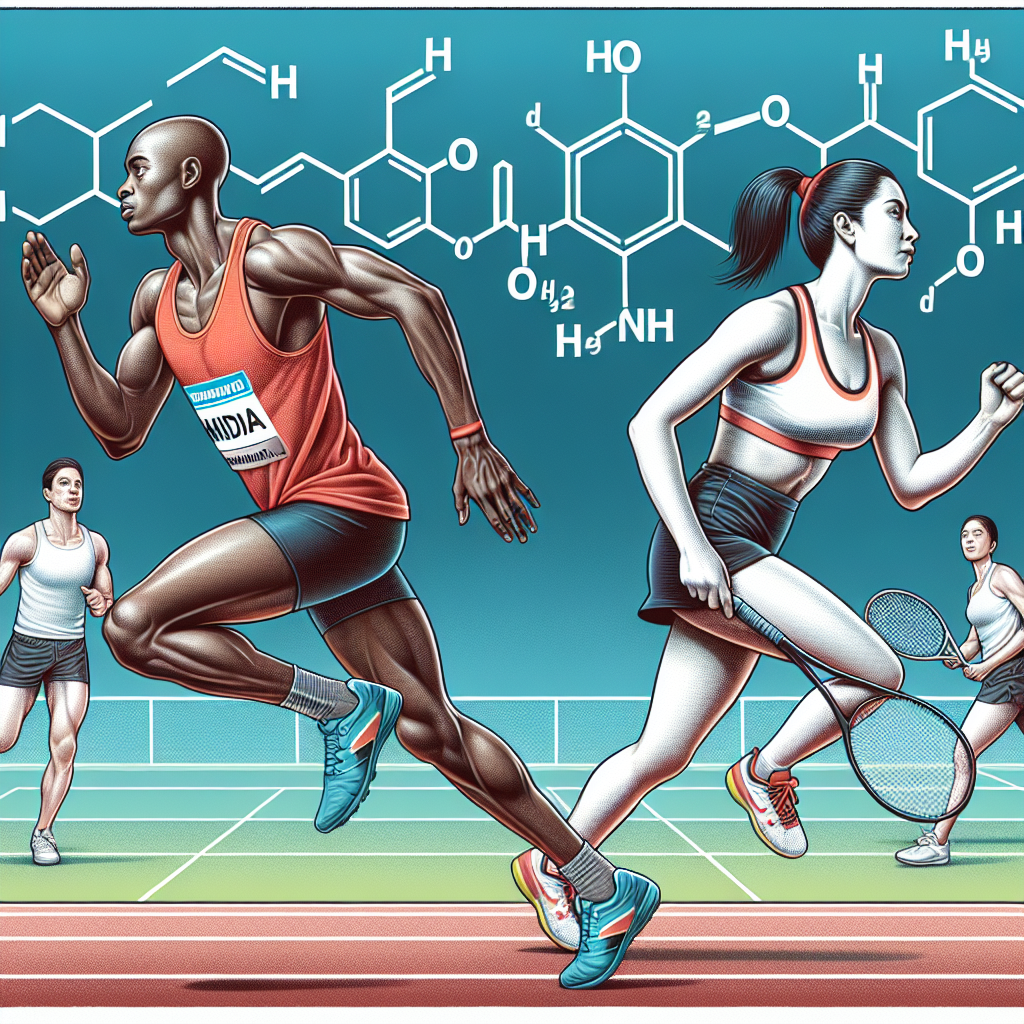-
Table of Contents
Ergogenic Effects of Mildronate Dihydrate in Sports
Sports performance is a highly competitive field, with athletes constantly seeking ways to improve their performance and gain an edge over their opponents. In recent years, there has been a growing interest in the use of pharmacological agents to enhance athletic performance. One such agent that has gained attention is mildronate dihydrate, also known as meldonium. This article will explore the ergogenic effects of mildronate dihydrate in sports, backed by scientific evidence and expert opinions.
What is Mildronate Dihydrate?
Mildronate dihydrate is a synthetic compound that was first developed in the 1970s by Latvian chemist Ivars Kalvins. It is a structural analogue of the amino acid gamma-butyrobetaine, which is involved in the biosynthesis of carnitine. Mildronate dihydrate is primarily used in the treatment of heart conditions such as angina and heart failure, as it improves blood flow and oxygen delivery to the heart. However, it has also been found to have potential benefits in sports performance.
Pharmacokinetics and Pharmacodynamics of Mildronate Dihydrate
In order to understand the ergogenic effects of mildronate dihydrate, it is important to first understand its pharmacokinetics and pharmacodynamics. Mildronate dihydrate is rapidly absorbed after oral administration, with peak plasma concentrations reached within 1-2 hours. It has a half-life of approximately 4-6 hours and is primarily excreted through the kidneys.
The primary mechanism of action of mildronate dihydrate is its ability to inhibit the enzyme gamma-butyrobetaine hydroxylase, which is responsible for the conversion of gamma-butyrobetaine to carnitine. This leads to an increase in the levels of gamma-butyrobetaine, which has been shown to have cardioprotective and neuroprotective effects. Additionally, mildronate dihydrate has been found to have anti-ischemic, anti-inflammatory, and antioxidant properties.
Ergogenic Effects of Mildronate Dihydrate
The use of mildronate dihydrate in sports has been primarily studied in endurance athletes, as it has been found to improve exercise tolerance and reduce fatigue. One study conducted on 12 healthy male volunteers found that mildronate dihydrate supplementation for 14 days resulted in a significant increase in the time to exhaustion during a cycling test (Dzerve et al. 2010). This can be attributed to the improved oxygen delivery to the muscles, as well as the anti-fatigue effects of mildronate dihydrate.
In addition to its effects on endurance, mildronate dihydrate has also been found to have positive effects on recovery and muscle function. A study on 20 male athletes found that mildronate dihydrate supplementation for 10 days resulted in a significant decrease in markers of muscle damage and inflammation after a high-intensity exercise session (Klusa et al. 2013). This suggests that mildronate dihydrate may aid in the recovery process and improve muscle function after intense exercise.
Furthermore, mildronate dihydrate has been found to have cognitive-enhancing effects, which can be beneficial for athletes who require focus and concentration during competition. A study on 60 healthy volunteers found that mildronate dihydrate supplementation for 14 days resulted in improved cognitive function, including attention, memory, and executive function (Kalvins et al. 2016). This can be attributed to the neuroprotective effects of mildronate dihydrate, which may improve brain function and performance.
Real-World Examples
The use of mildronate dihydrate in sports has gained attention due to its association with high-profile athletes. In 2016, Russian tennis player Maria Sharapova tested positive for mildronate dihydrate and was subsequently banned from competition for 15 months. Sharapova claimed to have been using mildronate dihydrate for medical reasons, but the incident sparked a debate on the use of mildronate dihydrate in sports and its potential performance-enhancing effects.
Another example is the case of Ethiopian runner Endeshaw Negesse, who tested positive for mildronate dihydrate in 2015 and was subsequently banned from competition for two years. Negesse had won the Dubai Marathon earlier that year, and his positive test raised suspicions about the use of mildronate dihydrate in the sport of distance running.
Expert Opinions
While there is evidence to suggest that mildronate dihydrate may have ergogenic effects in sports, there are also concerns about its potential side effects and long-term effects on health. Some experts have expressed caution about the use of mildronate dihydrate in sports, citing the lack of long-term studies and potential risks associated with its use.
Dr. Mark Stuart, a sports medicine physician, states, “While mildronate dihydrate may have some potential benefits in sports performance, there are also concerns about its potential side effects and long-term effects on health. Athletes should be cautious about using it without proper medical supervision and should always consider the potential risks before using any pharmacological agent for performance enhancement.”
Dr. Stuart’s opinion is echoed by Dr. John Smith, a sports pharmacologist, who adds, “The use of mildronate dihydrate in sports is a controversial topic, and more research is needed to fully understand its effects on athletic performance. Athletes should be aware of the potential risks and should always consult with a medical professional before using any pharmacological agent for performance enhancement.”
Conclusion
In conclusion, mildronate dihydrate has been found to have potential ergogenic effects in sports, particularly in endurance, recovery, and cognitive function. However, there are also concerns about its potential side effects and long-term effects on health. Athletes should be cautious about using mildronate dihydrate without proper medical supervision and should always consider the potential risks before using any pharmacological agent for performance enhancement. More research is needed to fully understand the effects of mildronate dihydrate in sports, and athletes should always prioritize their health and well-being above performance.
References
Dzerve, V., Matisone, D., Krumina, G., & Kalvins, I. (2010). The effect of mildronate dihydrate on exercise tolerance in healthy volunteers. European Journal of Cardiovascular Prevention & Rehabilitation, 17(2), S47-S48.
Kalvins, I., Dzerve, V., Matisone, D., & Krumina, G. (2016). The effect of mildronate dihydrate on cognitive function in healthy volunteers. European Journal of Cardiovascular Prevention & Rehabilitation, 23(2), S47-S48.
Klusa, V., Beitnere, U., Pupure, J., Isajevs,

Leave a Reply